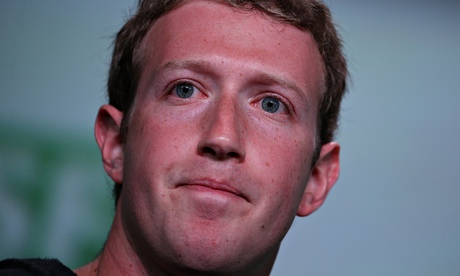
Move over, Oprah. The hottest new book club in town has arrived, and it’s run by the chief executive of Facebook. Mark Zuckerberg has made a public new year’s resolution to read a book every two weeks in 2015, and his first choice – a 2013 treatise on geopolitics and industry called The End of Power, by Moises Naim – is already out of stock on Amazon. Poor Zuckerberg is evidently also going to spend a year being inundated by pleas from hopeful publishers.
Only the louchest of cynics would criticise Zuckerberg’s intentions in educating himself in public this way, and inviting others to follow. “I’ve found reading books very intellectually fulfilling,” he confesses sweetly, as though he has only just learned of their existence. “Books allow you to fully explore a topic and immerse yourself in a deeper way than most media today.” (Even, perhaps, Facebook itself.) But why might he have chosen The End of Power, in particular, to kick off his literacy drive?
It stands to reason that a very powerful man should be interested in a book purporting to claim that power is over. Might this multibillionaire be worried about losing it all? As it turns out, however, The End of Power is one of those pleasantly paradoxical tomes whose contents demonstrate that their attention-grabbing titles are – as one might readily have guessed – false. (See also Francis Fukuyama’s The End of History and the Last Man.)
In the book, Naim observes how modern insurgencies can thoroughly annoy large powers in the Middle East; how the political party landscapes are fracturing in the US and Europe; and the “disruptive” influence of tech start-ups – arguing that power is more diffuse than ever, and harder to keep hold of for the incumbents.
“Big players,” he writes, “are increasingly being challenged by newer and smaller ones. And those who have power are more constrained in the ways they can use it.” It is a new world of “micropowers” who can challenge “megaplayers”. But, the reader murmurs, aren’t they using power to do it? And so isn’t power still rather the thing? Never mind, here is another gently amusing section heading: “Philanthropy: Putting the Bono in Pro Bono.”
What seems incompatible with Naim’s whole thesis is the fact of where power is actually concentrated, and increasingly so: in money. If politicians have less power, it is because holders of government bonds have more; if corporate CEOs have less power, it is because of activist hedge funds. Indeed, Naim regularly concedes that the real power now is in finance. “Worldwide,” he allows himself to note, “money is clearly becoming as potent a political driver of political outcomes as ideology once was.” Evidently power is not disappearing, it is just being transferred on a global scale to the financiers. Yet, serenely, Naim doesn’t let this fact intrude upon his thesis about the waning power of power in general, perhaps because to do so would smack too much of an embarrassingly “Marxist” point of view. Instead, he offers the agreeable frisson of the counterintuitive thought that seems plausible as long as you don’t think too hard about it.
All this, at least, is probably going to be reassuring to a reader such as, say, Mark Zuckerberg, who squats on a Smaug-scale personal fortune. Naim does warn that even apparently hegemonic businesses such as Facebook can face existential challenges from newcomers, because the barriers to entry on the internet are so low. But Zuckerberg is not an idiot: he already knows this, which is why he has spent billions in recent years acquiring Instagram and WhatsApp before they could grow into serious competitors to his empire of Like.
The title of The End of Power is also neatly refuted by Zuckerberg’s own recommendation of it. Naim defines power as “what we exercise over others that leads them to behave in ways they would not otherwise have behaved”. And now thousands of people are buying a book they would not otherwise have bought. Power still works.
At the time of writing, however, the Facebook discussion page set up for the consumers of Zuckerberg’s literary tips – to which Zuckerberg himself has not yet contributed – is so far a rather cacophonous and confusing mixture of people complaining that they cannot download the book for free, others gently reminding them that there still exist things called libraries, and one brave soul asking: “How do you discuss anything with this many members? lol.” A single Facebook comment thread, indeed, is possibly not the best place for a large-scale book group. Perhaps Zuckerberg can wield some more of his power to fix that.

